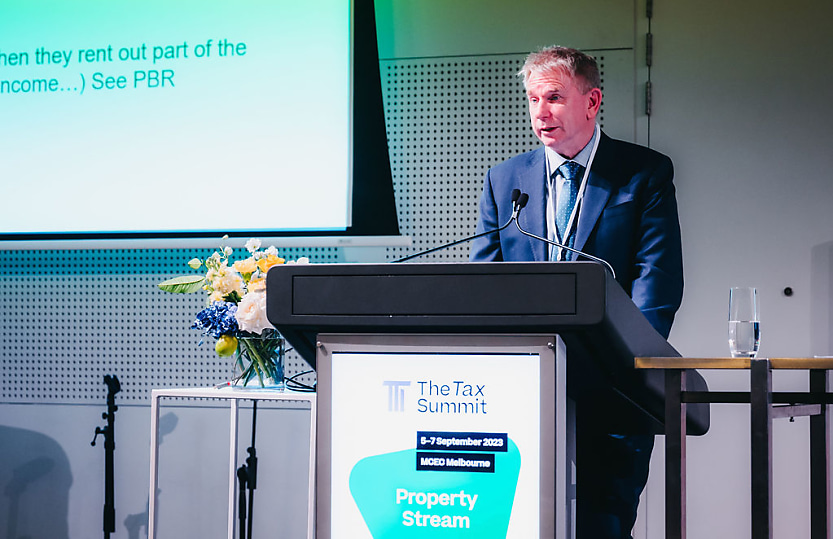Side hustles run from home can trigger CGT, tax lawyer warns

Conducting a business at your main residence imperils the levy exemption when the house is sold.
Running a side hustle from home could make the owner liable to CGT when the residence is sold, a tax lawyer warns.
Neil Brydges of Sladen Legal said the main residence CGT exemption, which typically meant homeowners avoided the levy, could be impacted if the owner was running a business out of the house.
He said those with multiple jobs – numbering almost 1 million and on the rise since the pandemic – needed to be advised on the difference between working from home and running a business from home.
Running a business from home “typically means having an area within the home that is clearly identifiable as a place of business, that is exclusively or almost exclusively used for carrying on a business or regularly used for visits by clients and customers”, he told the Tax Institute Summit in Melbourne this week.
A home office would fail to meet this criterion, he said, if was a matter of convenience to carry out work from home rather than at the regular place of business or employment.
Mr Brydges outlined the implications.
“If you started using the property for producing assessable income after 1996, and would otherwise be entitled to a full exemption, the cost base for the partial exemption is lifted to the market value at the time you first started using the property to produce assessable income.”
“That time also becomes the date of acquisition for the CGT discount – so if you sell it within a year, you won’t be eligible for the CGT discount.”
He said the concession was “deceptively complex”.
“The main residence exemption is probably the biggest concession in the Tax Act. You can buy a property in 1986, sell it in 2023, and if you satisfy certain requirements the entire gain isn’t subject to tax.”
“In many cases it’s easy to satisfy these requirements – a person lives in the dwelling and doesn’t rent it, demolish it or subdivide it – but life’s not that simple, because people do these things and it makes the exemption incredibly complex.”
If the home qualified for the exemption then it applied regardless, he said.
“This might be relevant in a post-Covid world, where someone may have bought a property at the peak of the COVID boom and sells it today. Once you factor in stamp duty, movement in the market, real estate fees, etc., the person might make a capital loss.
“They can’t choose not to apply the main residence exemption and use the capital loss to offset against capital gains, for example on shares sold – it doesn’t work like that.”
He said tax professionals should consider a number of factors when applying the CGT main residence exemption:
- Meeting the criteria of a residence: A residence is a dwelling – such as a house, apartment, retirement village unit and even houseboat or caravan – where someone “eats, sleeps and has a usual settled abode”.
There were a number of indicators that a dwelling might be someone’s main residence, including the length of time living there, whether their family lived in the same house and where their personal belongings were stored.
- Limit for big properties: The exemption applied to the land underneath the dwelling and adjacent land up to 2 hectares, but not beyond that. The adjacent land had to be used for private or domestic purposes in association with the dwelling.
- The catch with demolition and construction: Some people came unstuck because they bulldozed a house, subdivided and sold the lots. That meant the CGT exemption did not apply because there was no dwelling on the land.
About the author

